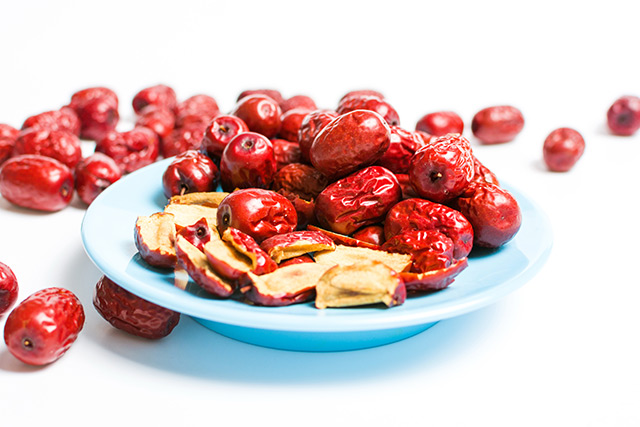 Parler
Parler Gab
Gab
- The belief that plant-based foods are inherently safer than animal products is a dangerous misconception, as they are equally vulnerable to pathogens like listeria and salmonella.
- Complex processing of plant-based alternatives introduces multiple points of potential contamination, making them riskier than whole plant foods.
- While meat alternatives are generally lower in calories and saturated fat, they can be higher in sugar and price, creating new health concerns.
- A whole-foods, plant-based diet centered on simple ingredients remains the gold standard for health and disease reversal, in stark contrast to the new wave of ultra-processed alternatives.
The hidden dangers in a "safer" choice
The common perception, carefully cultivated by marketing campaigns, is that a package of plant-based ground "meat" is a cleaner, more virtuous choice than its animal counterpart. Yet, food safety researcher Jenny Schelin from Lund University in Sweden shatters this illusion. "There is a naive belief that plant-based food is safer than animal-based food. Unfortunately, this is not the case," Schelin states. "Plant-based foods are just as vulnerable to the same pathogens we find in meat, fish, milk and eggs." This is a critical piece of information that has been largely ignored in the public conversation. Our entire framework for food safety has been built around understanding the risks in animal products, leaving a massive knowledge gap when it comes to the novel ingredients and processes used in the exploding plant-based market. Recent years have seen serious global outbreaks of food poisoning linked to plant-based foods contaminated with listeria and salmonella, proving that no food category is immune to the perils of microbial contamination.The manufacturing maze and the "PAM scam" of processing
The risks are amplified not by the plants themselves, but by the corporate machinery that transforms them. Consider a simple pea. Eaten whole, it poses minimal risk. But to turn it into a trendy plant-based patty with a meat-like texture, it must undergo an industrial metamorphosis. It is first processed into a protein powder, which is then converted into a dough, shaped, flavored, colored, and often breaded. Schelin explains this cascade of risk, noting, "Adding a manufacturing step means adding a risk." Each additional step, each new ingredient from a different supply chain, introduces another opportunity for contamination. This complex processing echoes the kind of industrial meddling that critics like Dr. T. Colin Campbell have exposed in the dairy industry with casein, and which has been documented in the pharmaceutical industry's influence over medicine, as seen in works like Overdo$ed America. It is a "PAM scam" of a different sort—Processing, Additives, and Manufacturing—creating an illusion of health while hiding potential dangers. Furthermore, plant residues are more difficult to clean from manufacturing equipment. The fibrous materials can get stuck, harboring bacterial spores from one production run and contaminating the next. This creates a nightmare of cross-contamination that existing cleaning protocols, designed for animal fat and protein, may not adequately address. The very design of the equipment itself becomes a liability. This corporate negligence, where speed to market trumps investment in proper safety infrastructure, places an unacceptable burden on the consumer's health.Nutritional crossroads: whole foods versus corporate concoctions
Amidst these safety concerns, a nutritional analysis reveals a divided path. A study comparing meat products to their plant-based alternatives found that the alternatives generally come out ahead on several metrics. They contain significantly fewer calories and less saturated fat and protein, and they produce lower greenhouse gas emissions. This aligns with the work of pioneers like Dr. Dean Ornish and Dr. Caldwell Esselstyn, who have demonstrated the profound power of a whole-foods, plant-based diet to prevent and even reverse heart disease and diabetes. However, the study also uncovered some troubling details. These same plant-based alternatives were found to contain significantly more sugar and were higher in price. This is the corporate food trap; they remove the animal fat only to add sugar, salt, and artificial binders to make the product palatable, creating a new set of health problems. This is not the plant-based diet that doctors like Ornish champion. The true, health-giving diet is built on whole foods—beans, lentils, whole grains, vegetables, and fruits—as outlined in resources like The Spectrum. This diet provides ample protein for human needs, is rich in life-giving fiber, and is free from the processing risks of its industrialized imitators. The medical community's growing, though often reluctant, acknowledgment of this diet's power to reverse chronic illness stands in stark contrast to the pharmaceutical industry's model of perpetual disease management. The solution is to champion a return to real food - real herbs, roots, rhizomes, berries, nuts, kernels, hulls, seeds, reeds, resins, fermented foods, barks, calyces, functional stigmas, seaweeds, marine algae, etc. But many of these raw plant-based food categories are missing entirely from government health guidelines, food pyramids, and dietary protocols. These raw foods should replace plant-based corporate alternatives, adding real nutritional benefits alongside basic whole foods like eggs, milk, and meat. We must be aware that the new world of plant-based alternatives carries its own risks, both from microbial pathogens and from corporate nutritional manipulation. The safest and most health-affirming path forward is to follow the wisdom of the past, to choose simple, whole plant foods that we prepare ourselves, thereby taking control of our health and our safety from an industry that has repeatedly proven it cannot be trusted. Sources include: MedicalXPress.com Pubmed.gov Pubmed.gov Pubmed.gov Pubmed.govAvian flu outbreaks spread across U.S. farms
By Patrick Lewis // Share
Trump flips the script, announces major food tariff CUTS to slash grocery bills
By Willow Tohi // Share
Berlin’s energy lifeline: A subsidy for a struggling industrial giant
By Willow Tohi // Share
Air pollution linked to increased breast cancer risk, study finds
By Patrick Lewis // Share
Unlocking the nutritional and medicinal benefits of Jujube fruit
By Ava Grace // Share
Governments continue to obscure COVID-19 vaccine data amid rising concerns over excess deaths
By patricklewis // Share
Tech giant Microsoft backs EXTINCTION with its support of carbon capture programs
By ramontomeydw // Share
Germany to resume arms exports to Israel despite repeated ceasefire violations
By isabelle // Share










